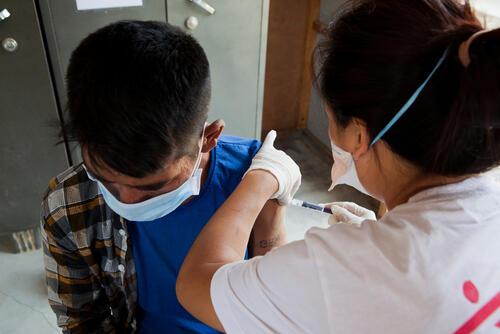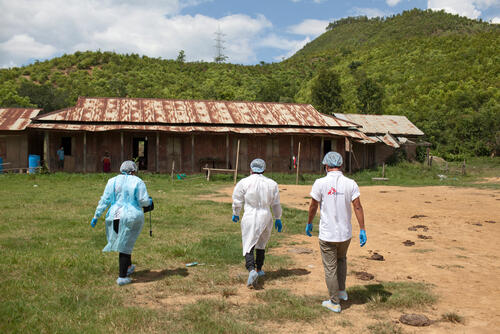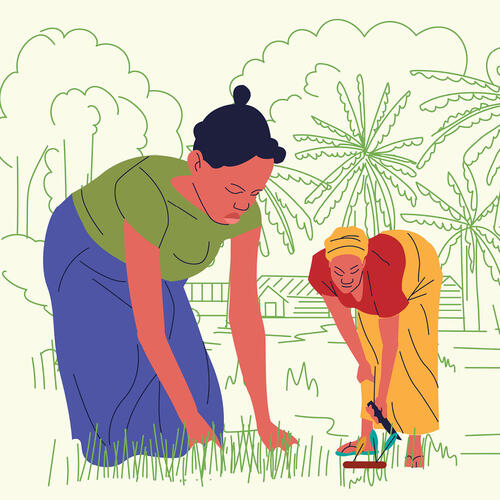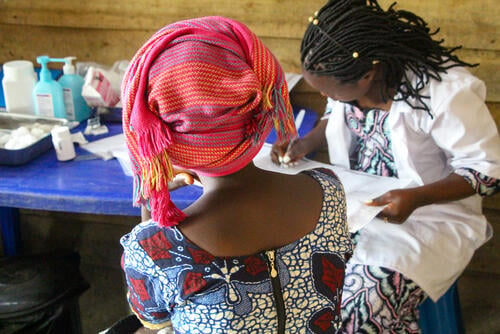Today on World AIDS Day, we mark four decades since mysterious illnesses started to take people's lives that we now know were due to the HIV virus, which dramatically lowers the body’s immune defences.
At the beginning of this century, AIDS-related illnesses (such as all forms of TB, pneumocystis pneumonia in the lungs, cryptococcal meningitis – a painful fungal infection of the brain) were often the result of patients being unaware of their HIV status, or a lack of HIV testing and antiretroviral treatment availability. Over 36 million people have died from AIDS-related illnesses since the start of the epidemic.
As the HIV epidemic enters its fifth decade, governments such as India's have made considerable advances in providing access to testing and antiretroviral therapy (ART) – a cocktail of antivirals drugs that suppress the virus – for people living with HIV.
Yet, we know that India lost nearly 60,000 people living with HIV in 2019, and there is concern that these numbers could be higher as the COVID-19 pandemic undermines progress with lockdowns and stretched healthcare systems.
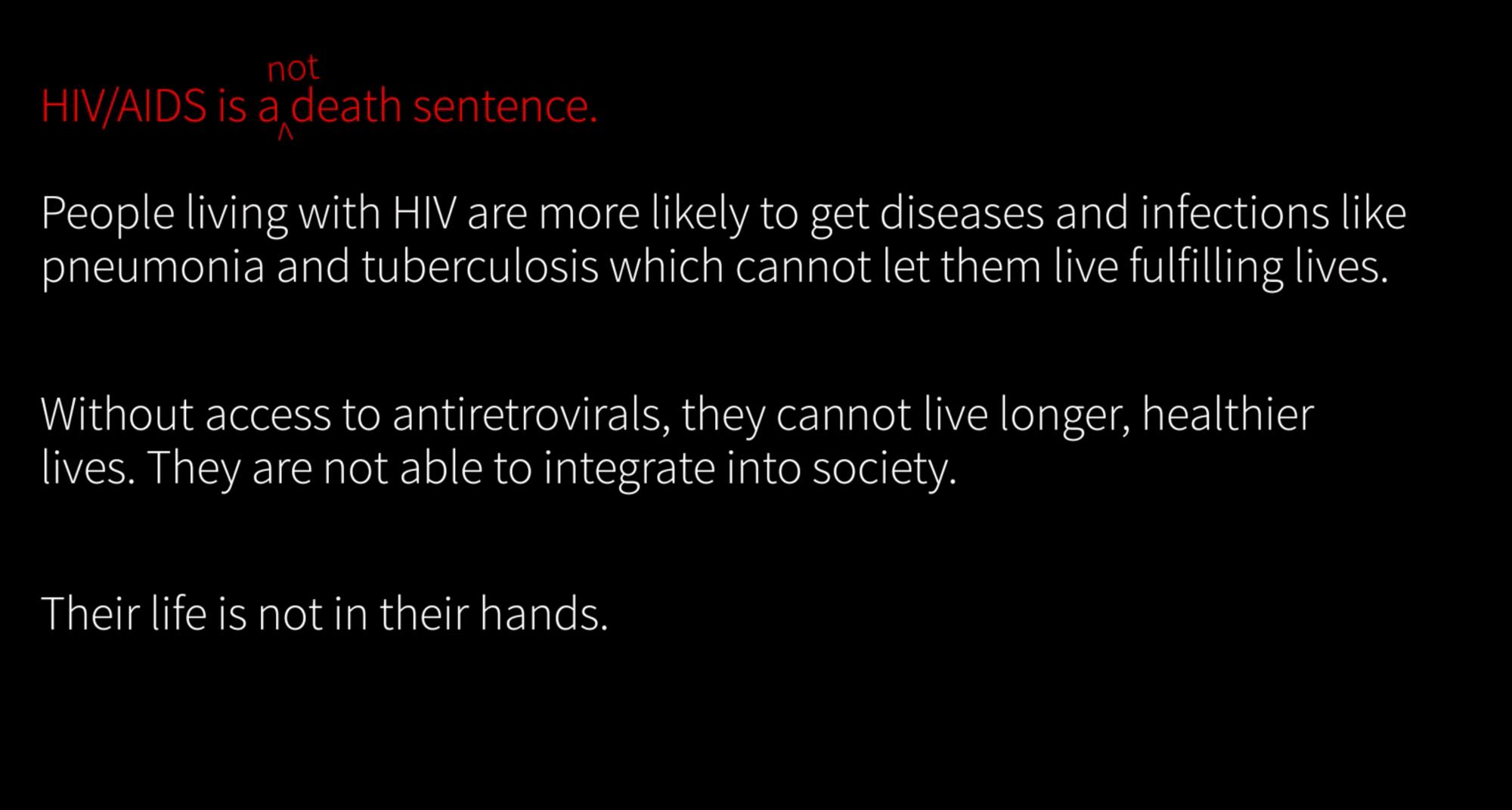
Rewrite the story
AIDS remains a crisis, and COVID-19 is making it worse, says Winnie Byanyima of the United Nations Programme on HIV and AIDS (UNAIDS). According to UNICEF, 120,000 children died from AIDS-related causes, or one child every five minutes, in 2020.
As India recovers from the pandemic, World AIDS Day provides an opportunity to assess the response to the continued mortality due to AIDS. While there has been a reduction of AIDS-related deaths since 2004, progress has stalled in recent years, highlighting that a scale-up of testing and antiretroviral treatment alone is not sufficient to end AIDS.
Can we do what needs to be done to stop people dying from AIDS? Maybe – but only if we pay more attention to the people who are most at risk of dying. One-third of people living with HIV get linked to HIV programmes when their immune systems are already compromised (CD4 cell counts of less than 200 cells/mm), making them vulnerable to infections.
I saw people living with HIV in India urgently in need of critical care... just as they did during the height of the global AIDS epidemic nearly two decades ago.Leena Menghaney, MSF Access Campaign
We have also seen that people living with HIV on antiretroviral therapy develop resistance to their regimen and become vulnerable to life-threatening bacterial and fungal infections – the primary causes of hospitalisation and death among the community.
The World Health Organization recommends that programmes identify people living with HIV at risk of Advanced HIV Disease (AHD) and provide a package of prevention, testing and treatment for the main killer diseases linked to AHD or AIDS.
Yet several years after the recommendation, screening tests, prevention and treatments for these life-threatening infections – now recognised as deadly signs of AIDS-related illnesses – are still missing from HIV programmes in high-burden countries like India.
My recent visit to the MSF medical facility in Bihar providing hospitalisation for people living with advanced HIV disease – many of whom have been turned away from other health facilities due to stigma – alarmed me. I saw people living with HIV in India urgently in need of critical care due to severe fungal and bacterial infections, just as they did during the height of the global AIDS epidemic nearly two decades ago.
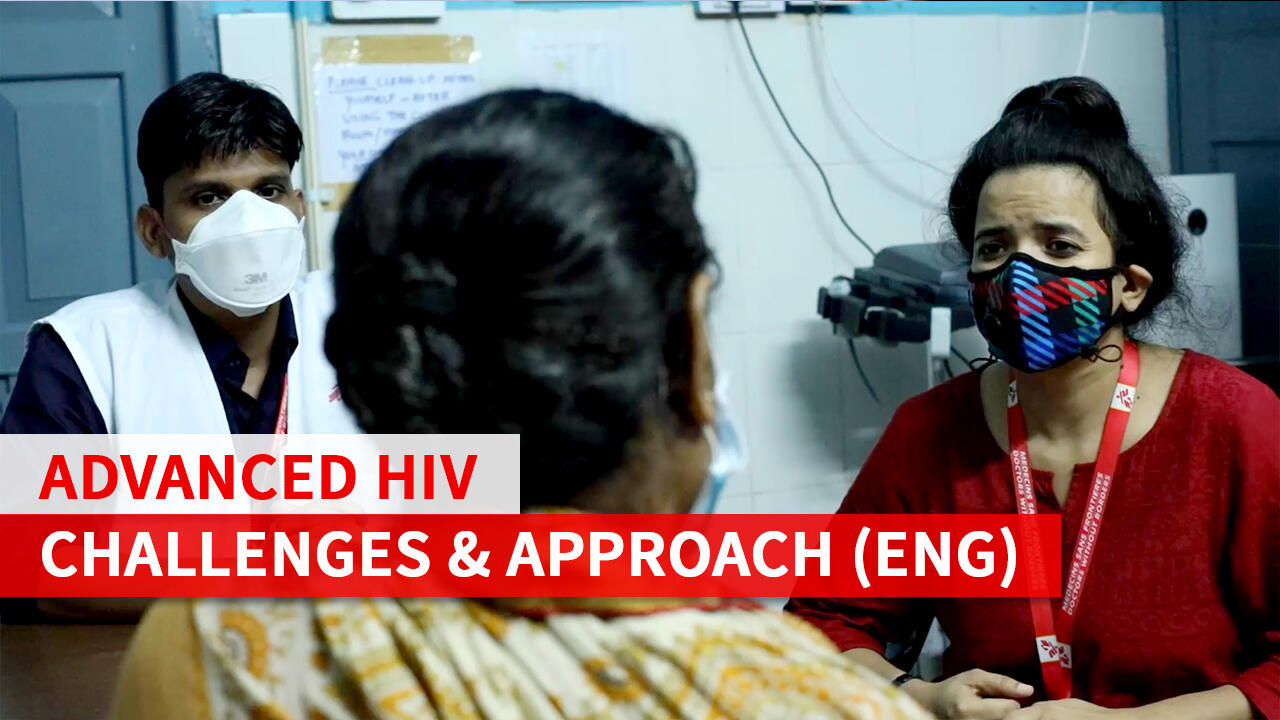
Advanced HIV - challenges and approach
The COVID-19 pandemic must not be an excuse to divert attention from HIV. HIV is not an easy virus to defeat, and we cannot be complacent in our response to the epidemic.
UNAIDS expects governments to reduce the number of people dying from HIV/AIDS to 250,000 by 2025, yet progress has stalled in recent years and cannot happen without throwing a lifeline to people with Advanced HIV Disease.
In India, care models are needed to fit those presenting (and re-presenting) with advanced HIV disease. As treatment activists, we need to advocate with the HIV programme to increase access to care, testing and new medicines to prevent the development of the two major causes of mortality among people living with HIV in India – TB and cryptococcal meningitis.
However, most importantly, we need political will from the HIV programme (National AIDS Control Organisation) to reduce the number of deaths among people living with HIV and take necessary measures to end AIDS.



